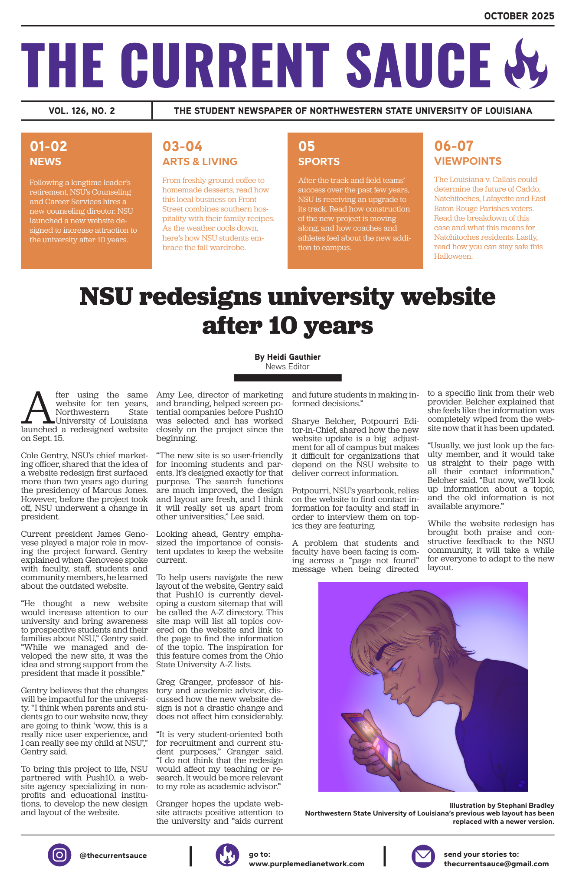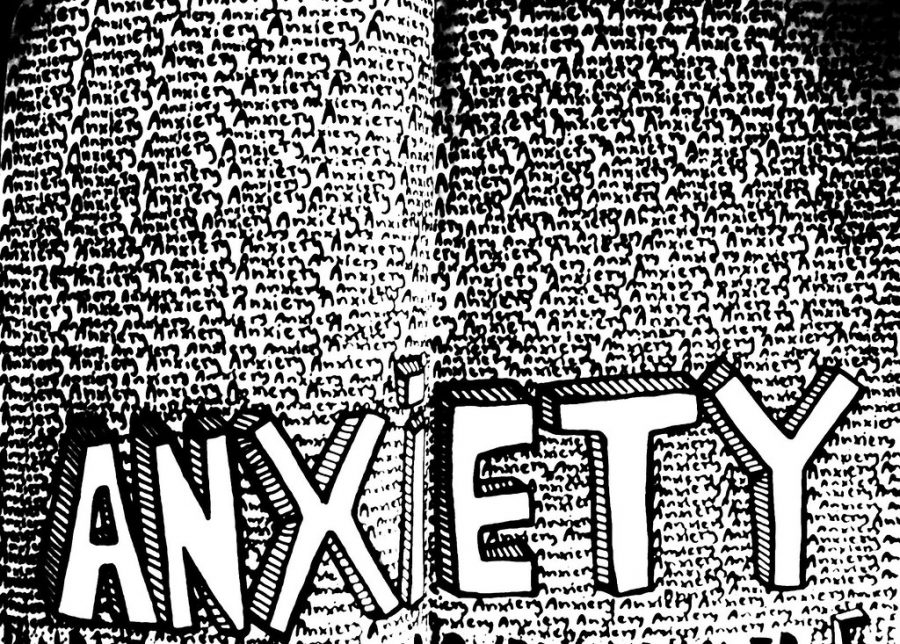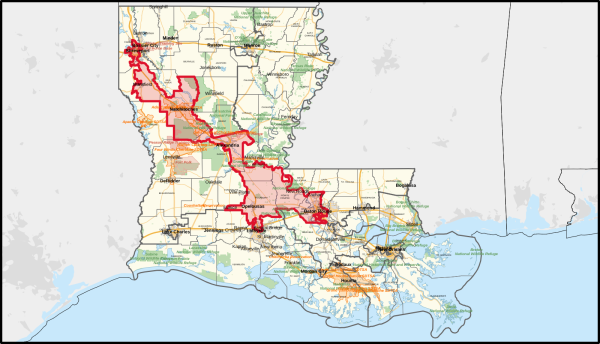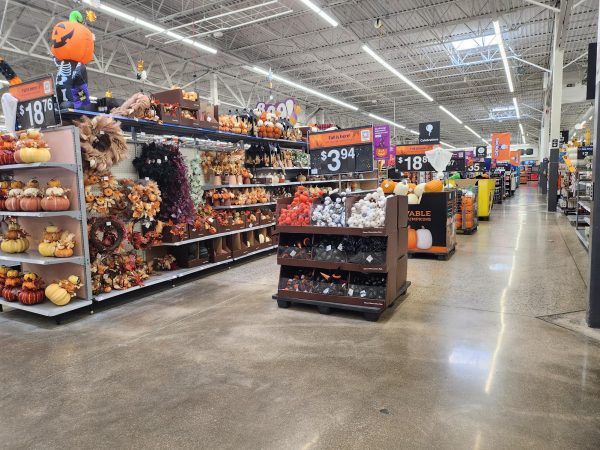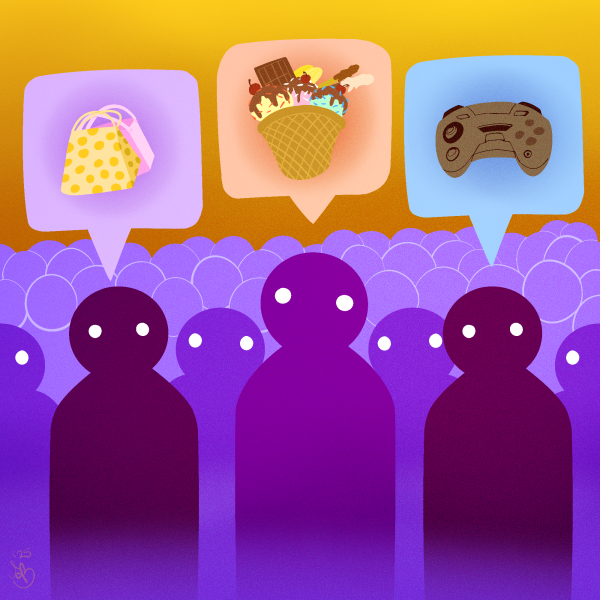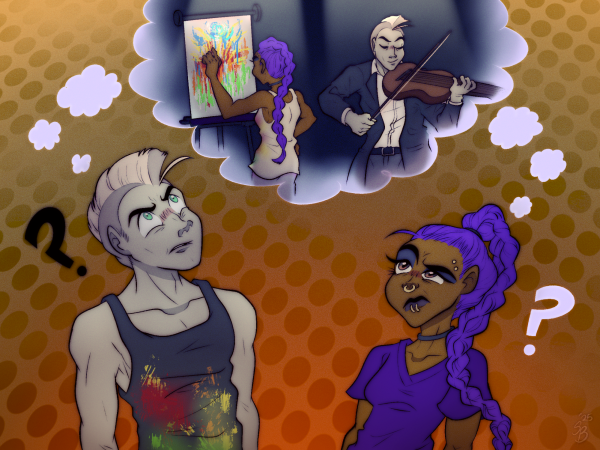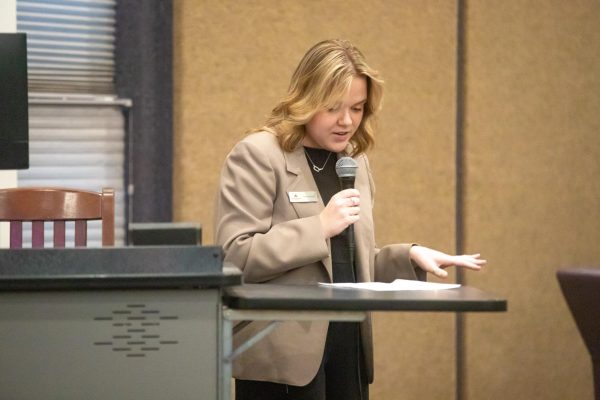Social anxiety can be a learned behavior
Kelsie Campbell We as a society must learn to cope, and learning to cope in itself is a behavior to be learned. Photo: “Anxiety” by Mari Z. is licensed under CC BY-NC-ND 2.0
Everyone has a little fear of or general anxiety involved with large groups of people. Maybe you also feel the paranoia of having toilet paper stuck to your shoes when you leave the public bathroom, resulting in that quick stop-and-check method everyone does.
But there’s something different in what exactly a social anxiety disorder is, and what it makes a person feel. How the disorder goes from a toilet-paper on the shoe fear to a people fear, is what makes it different.
Everyone has anxiety at least sometimes. Everyone can understand anxiety in all of its forms, we are an anxious species. Social anxiety (sometimes called social phobia) is defined by the health line website as a “type of anxiety disorder that causes extreme fear in social settings.”
Basically, they might have “trouble talking to people, meeting new people, and attending social gatherings.” Adding in the additional fear of judgment and scrutiny by others.
Now how does this tie into a learned behavior? Well, take anxiety on its own as a player in our little experiment. We only know what anxiety is because we learned the definition for it and assigned it to a way we feel in which only we know how it feels.
Every emotion is different from everyone else’s because it’s you experiencing it, not anyone else. So we decided that this behavior is what anxiety feels like, now we learned a behavior.
Similarly, when that behavior is mirrored in the people around us, we begin to also mirror those people naturally, especially when we are impressionable and young. Learning behavior is not bad by any means. It is an essential part of maturing and growing, the way we grow from a baby to an adult. So why would anything not be able to be learned?
Taking this on a personal side, I feel I have experienced social anxiety as a learned behavior by being raised by my single father all of my life. Having only one parent influencing your childhood paves the way for a very select grouping of learned behaviors, and unfortunately for my poor father, I picked up a lot of his traits.
Good things such as his politeness, soft-spoken and calm nature, as well as his goofy laugh have imprinted on me. On the flip side, bad traits such as his quick temper and general anxious mannerisms have also been a defining feature of my own personality.
He was only recently officially diagnosed with social anxiety, but we’ve known for a long time that his nervousness in crowds (bordering on genuine nausea when in social settings) has long been mirrored in me with my own social awkwardness and general lack of social cues.
Over time, being in college and living away from him, I have learned to be more confident in myself, and to push past my own feelings of anxiety.
I couldn’t quite kick my awkwardness though, as it is now a proud personality trait. Learning behaviors are not a bad thing, but they are a thing that must be acknowledged.
Not all mental illnesses are genetic, or a result of a specific neurological impairment, but they can be learned behavior, especially in instances where it manifests physically such as anxiety, paranoia, and phobias. If a mother always screams at the spider, so will their young three-year-old.
I hope this little insight into learned behaviors can give you some insight into your own mental health, and into the people around you.
We as a society are anxious, but that doesn’t mean we can’t live on happily in our day-to-day lives. Being diagnosed is not an end. A diagnosis is only a telling of a truth that you now have the option to learn to live with, to cope. So we as a society must learn to cope, and learning to cope in itself is a behavior to be learned.

